Five new PI’s join ITQB NOVA’s team
ITQB NOVA welcomes five new Principal Investigators. Ana Pina, Felipe Conzuelo, Pedro Matos Pereira and Sarela Garcia-Santamarina have been selected for MOSTMICRO, and will establish new labs integrated in this Research Unit. The lab headed by João Vicente will be now formally integrated on the ITQB NOVA structure, in the INOVA4HEALTH Research Unit.
This expansion is in line with ITQB NOVA’s vision to be a reference institute, nationally and internationally, in the development and promotion of scientific research in Life Sciences, Chemistry, and Associated Technologies for the benefit of Health and the Environment.
The four new MOSTMICRO PIs were selected through the 2020 call for candidates with an excellent track record and postdoctoral research experience, to establish independent research laboratories in areas relevant to the activity of the Research Unit. Pedro Matos Pereira and Sarela Garcia-Santamarina will head new labs in the Biology division, while Felipe Conzuelo’s research group will integrate the Biological Chemistry Division. Ana Pina was selected for MOSTMICRO, and her lab will be integrated in the Chemistry Division.
João Vicente, who has been contributing to research excellence at ITQB NOVA for years, will now be heading the Applied Protein Biochemistry Group in the INOVA4HEALTH Research Unit, as a part of the ITQB NOVA Biological Chemistry Division.
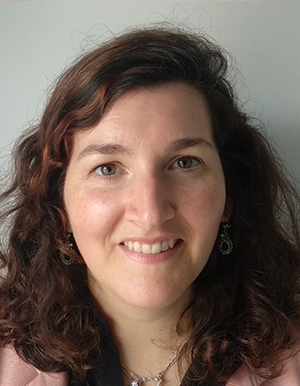 Ana Pina graduated in Applied Chemistry-Biotechnology and obtained her MSc, in Biotechnology, at the NOVA School of Science and Technology (FCT-NOVA), in 2008. She did her PhD in Biotechnology, in 2013, with a thesis on the combination of Peptide & Protein Engineering and combinatorial chemistry towards new affinity pairs tag-receptors for protein purification, with advisors Cecília Roque (FCT NOVA) and Chris Lowe (University of Cambridge, UK). In her post-doc, Ana led a project in a partnership between FCT-NOVA and the Advanced Science Research Center of the City, University of New York. She then became a junior researcher at FCT NOVA. Ana Pina received several awards, namely the “Young Investigator Award” (Hoffman-La Roche, 2009) and a Research Fund award (2019) from the Royal Society of Chemistry. At ITQB NOVA, she will lead the Bioinspired Peptide Systems lab (lab page available soon) and work with peptide-mediated systems as functional materials to, ultimately, mimic remarkable features of living cells (e.g., membraneless cellular compartmentalization).
Ana Pina graduated in Applied Chemistry-Biotechnology and obtained her MSc, in Biotechnology, at the NOVA School of Science and Technology (FCT-NOVA), in 2008. She did her PhD in Biotechnology, in 2013, with a thesis on the combination of Peptide & Protein Engineering and combinatorial chemistry towards new affinity pairs tag-receptors for protein purification, with advisors Cecília Roque (FCT NOVA) and Chris Lowe (University of Cambridge, UK). In her post-doc, Ana led a project in a partnership between FCT-NOVA and the Advanced Science Research Center of the City, University of New York. She then became a junior researcher at FCT NOVA. Ana Pina received several awards, namely the “Young Investigator Award” (Hoffman-La Roche, 2009) and a Research Fund award (2019) from the Royal Society of Chemistry. At ITQB NOVA, she will lead the Bioinspired Peptide Systems lab (lab page available soon) and work with peptide-mediated systems as functional materials to, ultimately, mimic remarkable features of living cells (e.g., membraneless cellular compartmentalization).
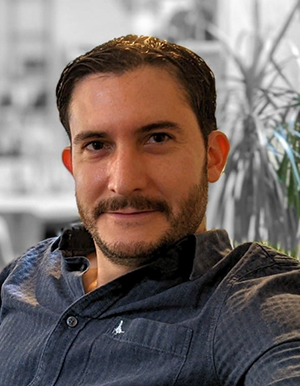 Felipe Conzuelo will head the Bioelectrochemistry and Electrobiotechnology Lab, within the Biological Chemistry Division. Felipe obtained his bachelor degree in Chemistry, his MSc (2011, Chemical Science and Technology) and PhD (2014) at the Complutense University of Madrid, Spain. For his doctoral work, he conducted research mainly dedicated to the design and fabrication of electrochemical biosensors for quality control and healthcare applications. After moving to the Department of Analytical Chemistry at the Ruhr University Bochum, Germany, he became a Senior Research Scientist and leader of the Local (Photo)Bioelectrochemistry Group, performing research primarily devoted to the investigation of semi-artificial photosynthetic devices. He has developed new strategies for investigating the electrochemical communication between enzymes and photosynthetic protein complexes with electrodes, including the use of scanning photoelectrochemical microscopy. His core research focuses on the field of bioelectrochemistry and electrochemical (bio)sensors, especially on fundamental and applied investigations on (photo)bioelectrocatalysis and bioelectronics.
Felipe Conzuelo will head the Bioelectrochemistry and Electrobiotechnology Lab, within the Biological Chemistry Division. Felipe obtained his bachelor degree in Chemistry, his MSc (2011, Chemical Science and Technology) and PhD (2014) at the Complutense University of Madrid, Spain. For his doctoral work, he conducted research mainly dedicated to the design and fabrication of electrochemical biosensors for quality control and healthcare applications. After moving to the Department of Analytical Chemistry at the Ruhr University Bochum, Germany, he became a Senior Research Scientist and leader of the Local (Photo)Bioelectrochemistry Group, performing research primarily devoted to the investigation of semi-artificial photosynthetic devices. He has developed new strategies for investigating the electrochemical communication between enzymes and photosynthetic protein complexes with electrodes, including the use of scanning photoelectrochemical microscopy. His core research focuses on the field of bioelectrochemistry and electrochemical (bio)sensors, especially on fundamental and applied investigations on (photo)bioelectrocatalysis and bioelectronics.
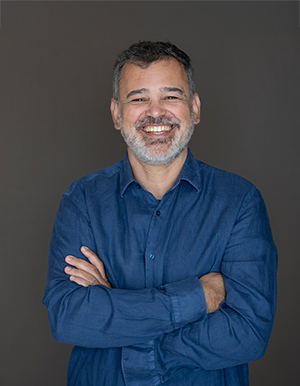 Pedro Matos Pereira will head the Intracellular Microbial Infection Biology Lab, in the Biology division. He has a diploma in Applied Chemistry (FCT NOVA, 2006), and completed his MsC (2007), in Biotechnology, at ITQB NOVA, where he also obtained his PhD, in 2013, in Cell Biology. His focus was on the regulation of the late stages of peptidoglycan biosynthesis and how these impacted resistance to cell-wall targeting antibiotics. Pedro has over 10-year experience in scientific project design and management, undergraduate and postgraduate student supervision and writing/communication of scientific information to both expert and non-expert audiences. He has made significant contributions in the fields of Staphylococcus aureus cell biology, host-pathogen interaction and hardware, software and probe-based technological innovations for microscopy. He has been a post-doc at ITQB NOVA since 2019 and has recently, been awarded the prestigious “La Caixa” Junior Leader Fellowship and an FCT project grant to develop an independent research project, which focuses on host-microbe interactions. His lab will focus on understanding the mechanisms underpinning the interaction between facultative intracellular bacterial pathogens and mammalian host cells during bacterial infection and viral-bacterial co-infection.
Pedro Matos Pereira will head the Intracellular Microbial Infection Biology Lab, in the Biology division. He has a diploma in Applied Chemistry (FCT NOVA, 2006), and completed his MsC (2007), in Biotechnology, at ITQB NOVA, where he also obtained his PhD, in 2013, in Cell Biology. His focus was on the regulation of the late stages of peptidoglycan biosynthesis and how these impacted resistance to cell-wall targeting antibiotics. Pedro has over 10-year experience in scientific project design and management, undergraduate and postgraduate student supervision and writing/communication of scientific information to both expert and non-expert audiences. He has made significant contributions in the fields of Staphylococcus aureus cell biology, host-pathogen interaction and hardware, software and probe-based technological innovations for microscopy. He has been a post-doc at ITQB NOVA since 2019 and has recently, been awarded the prestigious “La Caixa” Junior Leader Fellowship and an FCT project grant to develop an independent research project, which focuses on host-microbe interactions. His lab will focus on understanding the mechanisms underpinning the interaction between facultative intracellular bacterial pathogens and mammalian host cells during bacterial infection and viral-bacterial co-infection.
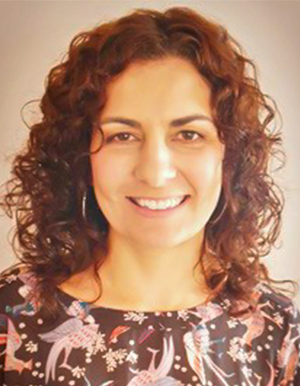 Sarela Garcia-Santamarina has a PhD from the University Pompeu Fabra (Barcelona), where she worked on mechanisms of oxidative stress signalling and toxicity in fission yeast. In her first post-doc, at Duke University (USA), she worked with a human fungal pathogen, Cryptococcus neoformans, in a fungal pathogen-host interface context. Sarela then moved to EMBL (Heidelberg) in 2018 for a second postdoc, with a Marie Curie fellowship (EIPOD). At EMBL, she optimized an in vitro microbiomics platform to answer the question of whether bacterial members of the gut microbiota behave the same against external perturbations (drugs) when they are alone or as part of a community. At ITQB NOVA, Sarela will be heading the Human Microbiota - Xenobiotics Interactions Lab, in the Biology Division. She will explore the mechanisms of gut microbial metabolism at the gene and strain level in a competitive environment, namely in other gut microbes and host cells. She will combine her expertise in the metal’s biology field with the knowledge in the microbiome field to set up experimental pipelines that lead to an understanding of the role of metals in driving gut microbial metabolism and its implications in human health and disease.
Sarela Garcia-Santamarina has a PhD from the University Pompeu Fabra (Barcelona), where she worked on mechanisms of oxidative stress signalling and toxicity in fission yeast. In her first post-doc, at Duke University (USA), she worked with a human fungal pathogen, Cryptococcus neoformans, in a fungal pathogen-host interface context. Sarela then moved to EMBL (Heidelberg) in 2018 for a second postdoc, with a Marie Curie fellowship (EIPOD). At EMBL, she optimized an in vitro microbiomics platform to answer the question of whether bacterial members of the gut microbiota behave the same against external perturbations (drugs) when they are alone or as part of a community. At ITQB NOVA, Sarela will be heading the Human Microbiota - Xenobiotics Interactions Lab, in the Biology Division. She will explore the mechanisms of gut microbial metabolism at the gene and strain level in a competitive environment, namely in other gut microbes and host cells. She will combine her expertise in the metal’s biology field with the knowledge in the microbiome field to set up experimental pipelines that lead to an understanding of the role of metals in driving gut microbial metabolism and its implications in human health and disease.
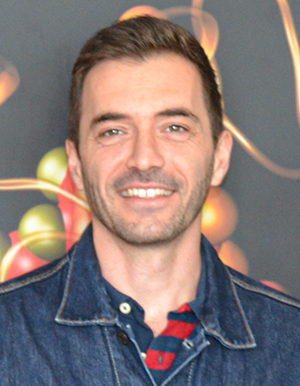 João Vicente leads the Applied Protein Biochemistry Group (lab page available soon), integrated into the Biological Chemistry Division. João earned his European Label PhD in Biochemistry from NOVA University of Lisbon (Portugal) and Sapienza University of Rome (Italy) in 2007. After a post-doc at Stanford University (USA) and ITQB NOVA, and a researcher position at the School of Pharmacy of the Lisbon University, he became an Auxiliary Investigator at the Macromolecular Crystallography Unit at ITQB NOVA. The Applied Protein Biochemistry Group addresses problems and pathologies regarding human metabolism (namely, the hydrogen sulfide metabolism) and works on therapeutic proteins against SARS-CoV-2 and similar viruses, or other biomedical applications. Their core scientific and methodological approaches combine protein biochemistry, biophysics and structural biology, benefiting from its integration in the Macromolecular Crystallography Unit. The lab's acquired knowledge is continuously shared within a network of collaborators and aims to enable the development of innovative diagnostics and therapeutic tools for different human diseases.
João Vicente leads the Applied Protein Biochemistry Group (lab page available soon), integrated into the Biological Chemistry Division. João earned his European Label PhD in Biochemistry from NOVA University of Lisbon (Portugal) and Sapienza University of Rome (Italy) in 2007. After a post-doc at Stanford University (USA) and ITQB NOVA, and a researcher position at the School of Pharmacy of the Lisbon University, he became an Auxiliary Investigator at the Macromolecular Crystallography Unit at ITQB NOVA. The Applied Protein Biochemistry Group addresses problems and pathologies regarding human metabolism (namely, the hydrogen sulfide metabolism) and works on therapeutic proteins against SARS-CoV-2 and similar viruses, or other biomedical applications. Their core scientific and methodological approaches combine protein biochemistry, biophysics and structural biology, benefiting from its integration in the Macromolecular Crystallography Unit. The lab's acquired knowledge is continuously shared within a network of collaborators and aims to enable the development of innovative diagnostics and therapeutic tools for different human diseases.







